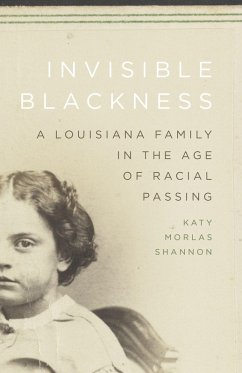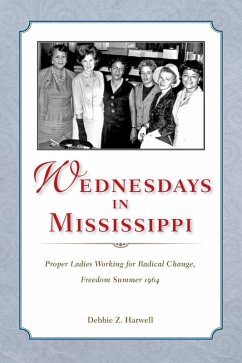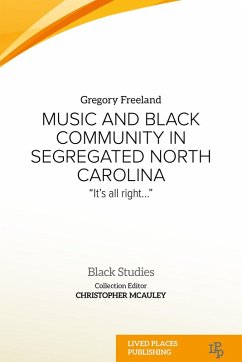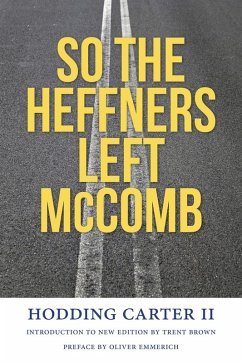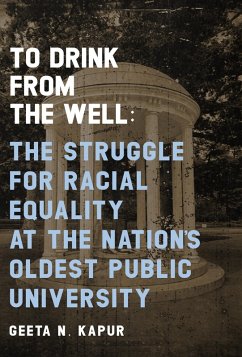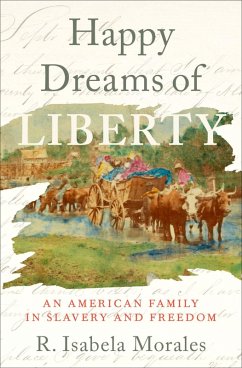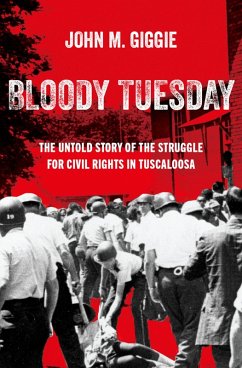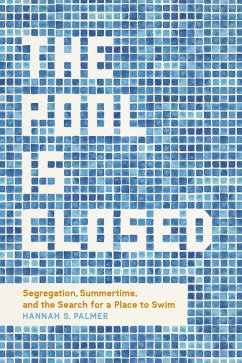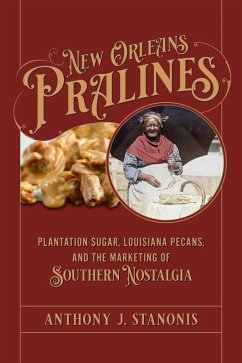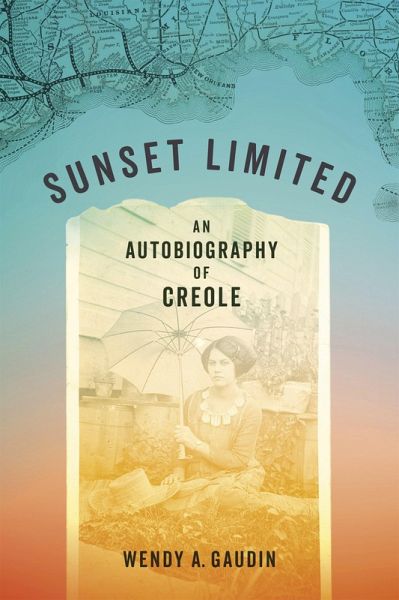
Sunset Limited (eBook, ePUB)
An Autobiography of Creole
Versandkostenfrei!
Sofort per Download lieferbar
15,95 €
inkl. MwSt.
Weitere Ausgaben:

PAYBACK Punkte
8 °P sammeln!
Shaped by centuries of migration, enslavement, freedom, colonization, and cultural mixture, Louisiana Creole identity is often simplified or misunderstood to fit into today's ideas about race and nationality. In Sunset Limited: An Autobiography of Creole, Wendy A. Gaudin fearlessly takes on the many meanings of Creole in a lyrical exploration of how this multilayered, transnational, bilingual, and racially expansive history of New Orleans and Louisiana has manifested itself in her own diasporic Creole family.When Gaudin's Creole grandparents boarded the Sunset Limited train in Jim Crow-era New...
Shaped by centuries of migration, enslavement, freedom, colonization, and cultural mixture, Louisiana Creole identity is often simplified or misunderstood to fit into today's ideas about race and nationality. In Sunset Limited: An Autobiography of Creole, Wendy A. Gaudin fearlessly takes on the many meanings of Creole in a lyrical exploration of how this multilayered, transnational, bilingual, and racially expansive history of New Orleans and Louisiana has manifested itself in her own diasporic Creole family.
When Gaudin's Creole grandparents boarded the Sunset Limited train in Jim Crow-era New Orleans, they imagined new lives for themselves in the city of Los Angeles. The Sunset Limited produced a twentieth-century Creole community on the West Coast, whose members ate the traditional foods of south Louisiana, gathered in one another's homes and churches, spoke in the distinctive dialects of the Gulf Coast, and taught their children to respect their unique, blended ancestry and their centuries-long history.
As an adult, yearning to know more about her Creole background, Gaudin returned to Louisiana. There, she began to trace her Creole ancestors back to the time before the Civil War, confronting hard truths about the past her grandparents left behind. Revisiting the lands of her ancestors, diving into the archival record, interviewing those who remained in New Orleans, and remembering the stories told to her by her elders, Gaudin sought answers to questions asked by many whose lives are shaped by migration: Why did her people leave their ancestral home? What did they lose in the leaving, and what did they gain?
Sunset Limited explores the boundaries of what it means to be Creole, how migration shaped Gaudin's family and her community, and how this history is remembered and told. Incorporating historical narrative, oral history, biomythography, historiography, cultural geography, autoethnography, and poetry, Sunset Limited is as multidimensional and dynamic as Louisiana Creoles themselves. Weaving together the stories of her mixed-race elders, the artifacts of her ancestors, and memories of her California childhood, Gaudin argues that history is not a cold, linear record of the past. Rather, it is a deeply felt understanding of how we are shaped by the movements of our ancestors, and of our rich and ever-changing relationships with those who came before us.
When Gaudin's Creole grandparents boarded the Sunset Limited train in Jim Crow-era New Orleans, they imagined new lives for themselves in the city of Los Angeles. The Sunset Limited produced a twentieth-century Creole community on the West Coast, whose members ate the traditional foods of south Louisiana, gathered in one another's homes and churches, spoke in the distinctive dialects of the Gulf Coast, and taught their children to respect their unique, blended ancestry and their centuries-long history.
As an adult, yearning to know more about her Creole background, Gaudin returned to Louisiana. There, she began to trace her Creole ancestors back to the time before the Civil War, confronting hard truths about the past her grandparents left behind. Revisiting the lands of her ancestors, diving into the archival record, interviewing those who remained in New Orleans, and remembering the stories told to her by her elders, Gaudin sought answers to questions asked by many whose lives are shaped by migration: Why did her people leave their ancestral home? What did they lose in the leaving, and what did they gain?
Sunset Limited explores the boundaries of what it means to be Creole, how migration shaped Gaudin's family and her community, and how this history is remembered and told. Incorporating historical narrative, oral history, biomythography, historiography, cultural geography, autoethnography, and poetry, Sunset Limited is as multidimensional and dynamic as Louisiana Creoles themselves. Weaving together the stories of her mixed-race elders, the artifacts of her ancestors, and memories of her California childhood, Gaudin argues that history is not a cold, linear record of the past. Rather, it is a deeply felt understanding of how we are shaped by the movements of our ancestors, and of our rich and ever-changing relationships with those who came before us.
Dieser Download kann aus rechtlichen Gründen nur mit Rechnungsadresse in A, D ausgeliefert werden.




